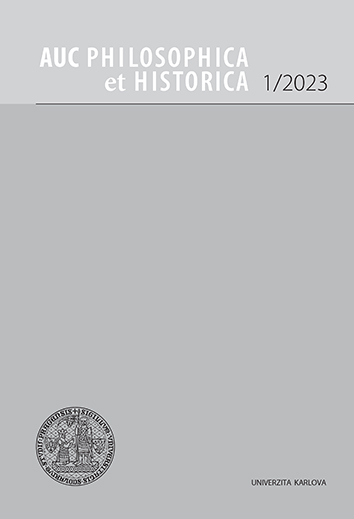AUC Philosophica et Historica je víceoborový akademický časopis zaměřený na humanitní a společenskovědné obory (filozofie, psychologie, pedagogika, sociologie, obecné, české a hospodářské dějiny, pomocné vědy historické a archivnictví, etnologie).
Časopis je indexován v databázích CEEOL, DOAJ a EBSCO.
AUC PHILOSOPHICA ET HISTORICA, Vol 1996 No 2 (1996), 21–36
Luhmannův teoretický pokus o postižení komplexity moderní společnosti
[Luhmanns Theoretical Attempt at Identifying the Complexity of Modern Society]
Jiří Šubrt
DOI: https://doi.org/10.14712/24647055.2018.60
zveřejněno: 15. 01. 2018
Abstract
The German sociologist Niklas Luhmann ranks among the scholars who have tried to give sociology a new direction and orientation. His theory represented an attempt to describe the world by distinguishing between system and environment. A key place in Luhmanns thought on social systems is occupied by the terms „complexity“, „contingency“ and „auto-poiesis.“ Growing complexity and functional differentiation are the main marks of modem society. For Luhmann the basic units of social systems arc not individuals, but communicate is In this context he is returning to Parsons idea of double contingency. The internal differentiation of a system involves the emergence of subsystems within it, and mutual relations between such subsystems, which exhibit greater degrees of just that characteristic which Luhmann defines as contingence. One of the main signs of social evolution lies in the differentiation of individual communicational fields – such as the economy, law, politics, science, religion, education, art, intimate relations – and in the specialization of different media and codes. The great number of these media and codes means that today the operation of society is ever more complicated and problematic.
